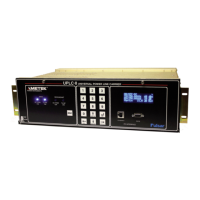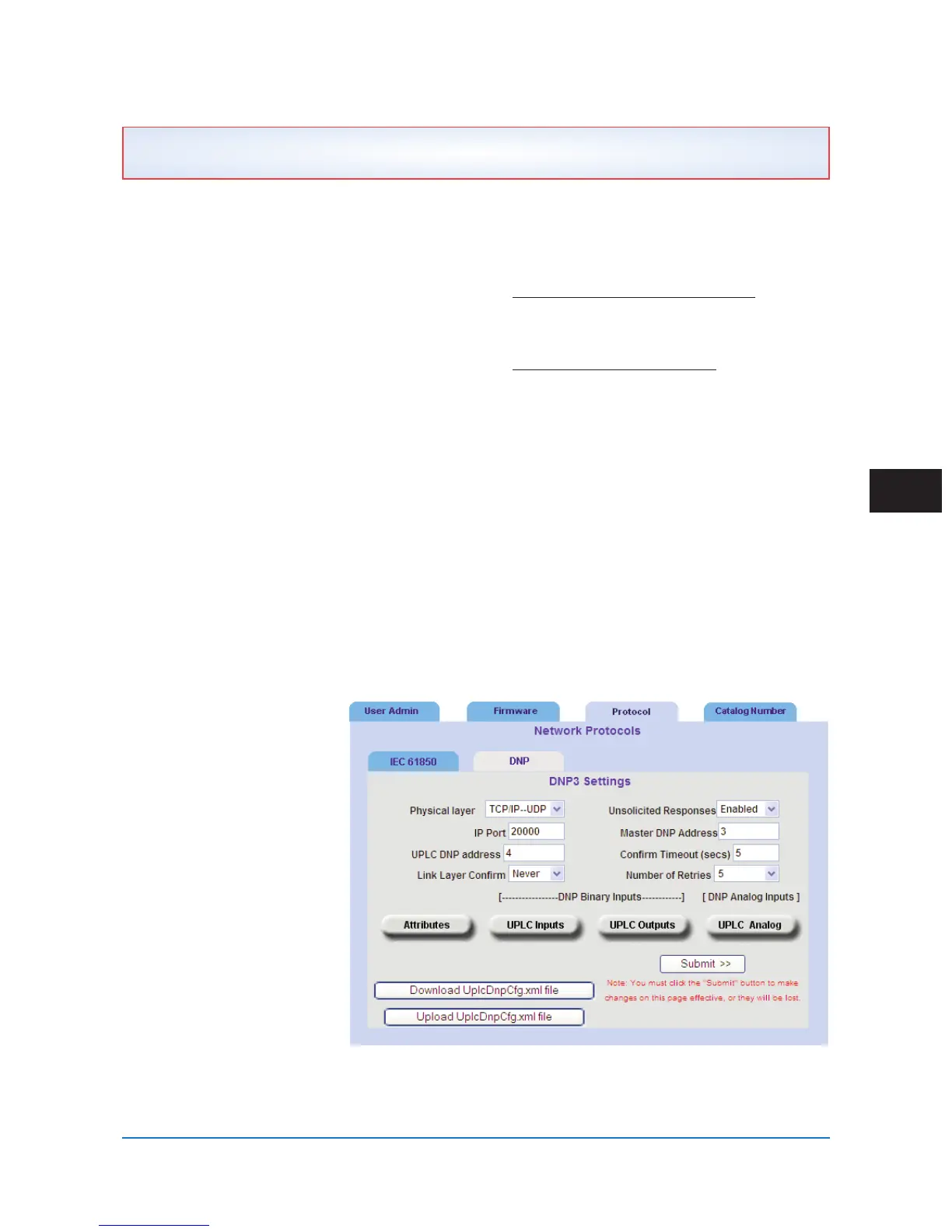Copyright © AMETEK Page 7–1
7. Communication Protocols
7
The UPLC-II™ is available with separate proto-
cols. The Distributed Network Protocol, DNP 3;
and the IEC61850 object oriented standard.
7.1 DNP 3
The UPLC-II™ can communicate via DNP 3 using
one of the following ports/standards.
• Std. rear 9-pin D-sub connector (J4) via RS-
232* (Use Std. Straight-through 9-pin Serial
Cable, Male to Female)
• Standard rear 9-pin D-sub connector (J4) via
RS-485 (TX- = pin#2, TX+ = pin#8, RX- =
pin#3, RX+ = pin#7)
• Optional rear Ethernet connector (TX1/RX1
or TX2/RX2) via TCP/IP–UDP
The account holder must have “User” privileges to
set the DNP communications.
The UPLC-II™ DNP communications works in a
slave mode as an outstation device and supports
level 1 & 2 of the DNP 3 protocol. A DNP device
profile can be generated by downloading the
UplcDnpCfg.xml file into a folder with the appro-
priate DNP device profile xsd,
xsx & xslt files (2009) and then
opening the UplcDnpCfg.xml
file.
7.1.1 DNP 3 Settings
7.1.1.1 Main DNP Web
Page Settings
The following settings must be
made on the main DNP page.
1) Click on the Admin but-
ton in the left task bar.
2) Next, click on the
Protocol Tab.
3) Finally, click on the DNP Tab.
If the physical layer is set to RS-232 or RS-485
mode, a Baud rate must be chosen. For the TCP/IP–
UDP mode, an IP port must be chosen.
Physical Layer = RS-232 or RS-485
• Baud = 2400, 4800, 9600, 19200, 38400 or
115200
Physical layer = TCP/IP–UDP
• IP Port = 20000 (default) or 49152–65535
• UPLC-II™ DNP address = 1–65519
• Link Layer Confirm = Never, Multi or
Always
• Unsolicited Responses = Disabled or
Enabled
If “Unsolicited Responses” is enabled, the follow-
ing additional settings must be made.
• Master DNP Address = 1–65519
• Confirmation Timeout (secs) = 1–60
• Number of Retries = 1–5 or indefinite
Figure 7–1. DNP Page
(Admin > Protocol > DNP)
* Terminal Emulator Program Settings:
Data Bits/Per Word = 8
Stop Bits = 1
Parity = None
Flow Control/Handshake = None

